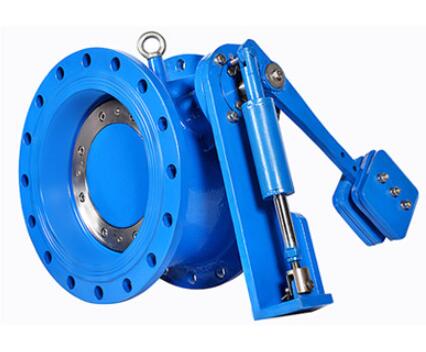A check valve is an essential component in many fluid systems, allowing fluids to flow in one direction while preventing reverse flow. When functioning properly, check valves ensure system efficiency and safety. However, when a check valve leaks, it can lead to several serious problems. Even minor leaks can have significant consequences on the system’s performance and reliability. In this article, we will explore the common problems that can arise when a check valve leaks and how they can affect various systems.

Loss of System Pressure
One of the most common issues caused by a leaking check valve is the loss of system pressure. Check valves are designed to maintain pressure by preventing backflow, but when a leak occurs, it allows fluid to flow in the wrong direction. This backflow reduces the pressure needed for the system to function effectively.
In hydraulic systems, for example, the loss of pressure can result in reduced power or operational inefficiency. Pumps may need to work harder to maintain pressure levels, leading to increased energy consumption and possible wear on the system’s components. If left unresolved, this loss of pressure could cause more extensive damage or even complete system failure.
Backflow Contamination
Another significant risk associated with a leaking check valve is the potential for backflow contamination. When a check valve leaks, it allows fluid to reverse direction, which can result in contaminated fluids mixing with clean fluids. This is especially dangerous in systems where purity is critical, such as water supply lines or chemical processing systems.
In water systems, for instance, a leaking check valve can allow contaminated water to mix with potable water, leading to health hazards. In chemical systems, mixing incompatible fluids can result in unwanted chemical reactions, potentially causing damage to equipment or creating safety risks for workers. Backflow contamination can require costly cleanup and, in some industries, can result in regulatory fines or penalties.
Increased Wear and Tear on Equipment
A leaking check valve can lead to increased wear and tear on the entire system. When backflow occurs, pumps, motors, and other equipment may need to work harder to compensate for the lost pressure. This additional strain can accelerate the degradation of key components, reducing their lifespan and leading to more frequent breakdowns.
In systems that operate under high pressure or with abrasive fluids, even small leaks can cause significant wear over time. Equipment designed to function under specific flow and pressure conditions can be damaged if those parameters are compromised due to a leaking valve. Ultimately, this can lead to costly repairs, downtime, and the need for premature replacement of system components.
Reduced Efficiency and Increased Energy Costs
When a check valve leaks, it forces the system to work harder to maintain its intended flow and pressure levels. This added strain not only increases wear but also reduces the overall efficiency of the system. Pumps, for instance, may run continuously or at higher speeds to make up for the lost pressure, consuming more energy in the process.
Over time, this reduced efficiency can result in significantly higher operating costs, as energy consumption rises. In industrial settings, these additional costs can add up quickly, reducing profit margins and overall system performance. Addressing leaks promptly is essential to avoid long-term inefficiencies and energy waste.
Safety Hazards
A leaking check valve can also pose safety hazards, particularly in high-pressure systems or systems dealing with hazardous materials. In some cases, reverse flow caused by a leaking valve can lead to pressure imbalances or uncontrolled fluid movements that could harm operators or damage surrounding equipment.
In systems handling chemicals, fuels, or other hazardous substances, a leak could create dangerous situations such as fires, explosions, or exposure to toxic materials. Ensuring that check valves are regularly inspected and maintained is critical to preventing leaks and mitigating these safety risks.
Conclusion
Leaking check valves can cause a wide range of problems, including loss of pressure, backflow contamination, increased wear on equipment, reduced system efficiency, and even safety hazards. Addressing leaks quickly and maintaining proper system care is essential for preventing more severe issues and ensuring the long-term health of fluid systems.
If you suspect a check valve leak in your system or need expert advice on choosing the right check valve for your application, feel free to contact us. We are a trusted supplier of high-quality valve solutions, ready to help you keep your systems running smoothly.

